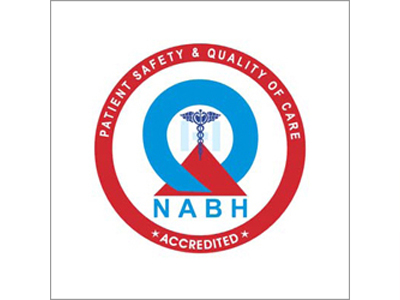Who is at risk?
Idiopathic Intracranial Hypertension (IIH) is becoming increasingly prevalent, particularly among women of childbearing age (typically between 20-50 years of age) and individuals with obesity ad optic nerve disorders. Increased use of steroids, Vitamin A supplements, oral contraceptive pills, long-acting tetracyclines (antibiotics), prevalence of obesity, co-existing anemia and polycystic ovarian disease have all resulted in a surge in the number of cases of IIH.
What causes it?
Characterized by increased pressure in the brain in the absence of a brain tumor, infection, or obstruction in the visual pathways, it affects the eyes and brain. IIH typically results from slow outflow of the fluid around the brain and increased fluid circulation around the brain. Our eyes are an extension of the brain, and the increased fluid around the brain affects the optic nerve causing it to swell resulting in headaches and blurred or double vision. Since headaches are a common occurrence, patients often delay seeing a doctor resulting in frequent misdiagnosis or diagnosis at a later stage.
Symptoms
- Severe headaches
- Blurred vision and double vision
- Transient Visual Obscurations (TVOs – optic nerve disorder)
- Tinnitus (Ringing sound in the ears)
Diagnosis and Treatment
- Ophthalmologists (eye specialists) play a pivotal role in diagnosing and managing this condition.
- Ophthalmologists identify eye signs and collaborate with radiologists, neurologists, and neurosurgeons to coordinate further care.
- The diagnosis involves specific brain scans to rule out other causes, assessing eye pressure and initiating treatment.
- Treatment focuses on weight reduction, medical management, and, occasionally, surgical intervention. Typically, a 10% reduction in body weight can help control the disease.
- Medical management often includes medications to alleviate pressure in the brain, which can reverse optic nerve effects.
- Surgical management may be necessary for patients with severe or rapidly worsening vision loss. Neurosurgeons perform shunt surgeries to drain excess brain fluid.
- Treatment efficacy monitoring relies on visual field tests, serial eye examinations and OCT scans by Ophthalmologists
IIH left untreated can lead to vision impairment, irreversible vision loss and related complications. Individuals experiencing chronic headaches should consult a neurologist or a neuro-ophthalmologist to undergo an IIH evaluation. IIH can be managed with timely diagnosis and treatment.
'Joining a patient support group (IIH Warriors India group on social media) enables patients suffering from unexplained persistent headaches to share concerns and experiences fostering a supportive and informative community,' says Dr Virender Sachdeva, Squint, Paediatric and Neuro-ophthalmologist at the L V Prasad Eye Institute, GMR Varalakshmi Campus at Vishakhapatnam.
About LVPEI:
Established in 1987, with the vision,” to create excellent and equitable eye care systems that reach all those in need,” the L V Prasad Eye Institute (LVPEI), a comprehensive eye health facility, is a World Health Organization Collaborating Centre for Prevention of Blindness.
In pursuance of this vision, LVPEI clinicians and scientists work at the cutting edge of eye research. Through its five-tier ‘‘Eye Health Pyramid’ model, it has till date offered over 36.89 million services (3 crores 68 lakh services), with more than 50% entirely free of cost, irrespective of the complexity of care needed. For further information, visit the Institute’s website, www.lvpei.org.
About IIH Warriors India:
IIH Warriors India is a 6-year-old patient support and advocacy community dedicated to uniting and offering peer support to individuals living with Idiopathic Intracranial Hypertension (IIH) and their caregivers across India. Given the dynamic and often invisibly disabling nature of IIH, managing the condition involves a multidisciplinary team of neurosurgeons, neurologists, neuro-ophthalmologists, ophthalmologists, and primary care physicians, each providing tailored treatment to relieve symptoms and prevent permanent disability. Supported by doctors who offer guidance and references, the platform bridges information gaps by disseminating essential IIH-related data while advocating for increased research, affordable healthcare, and reasonable accommodations to improve the quality of life for those living with this incurable condition.


